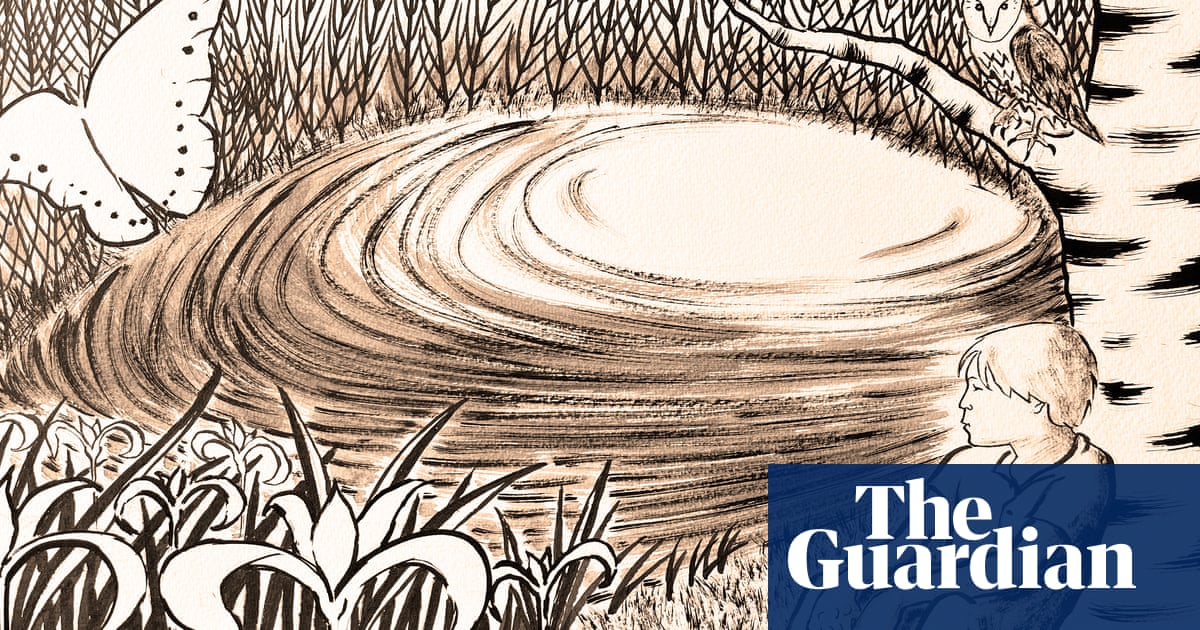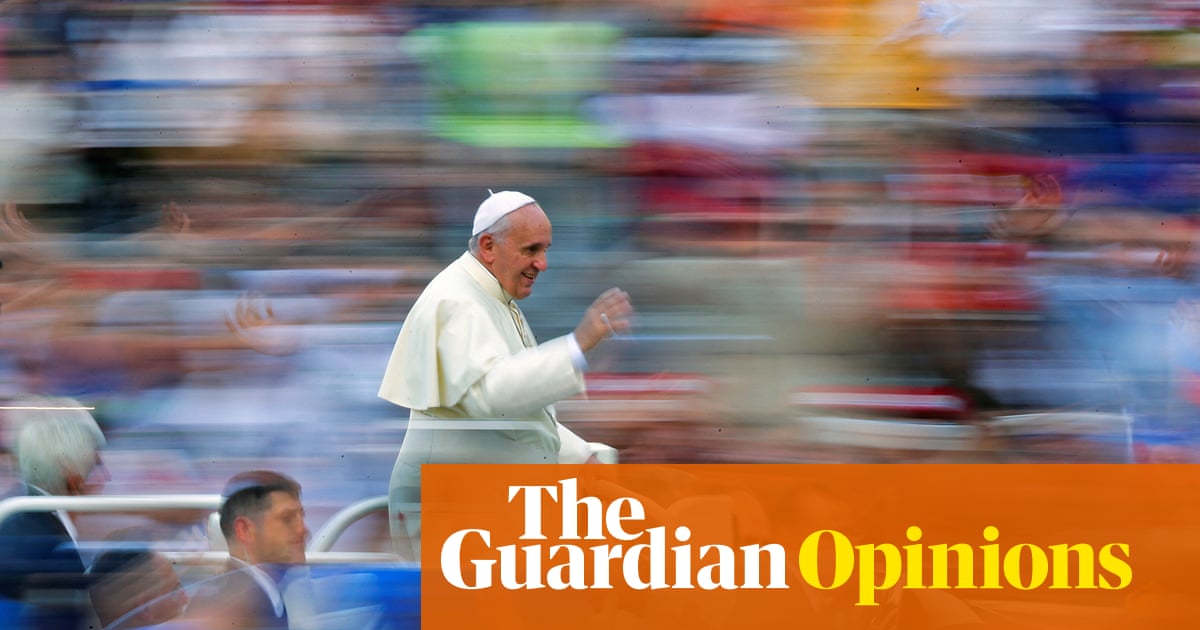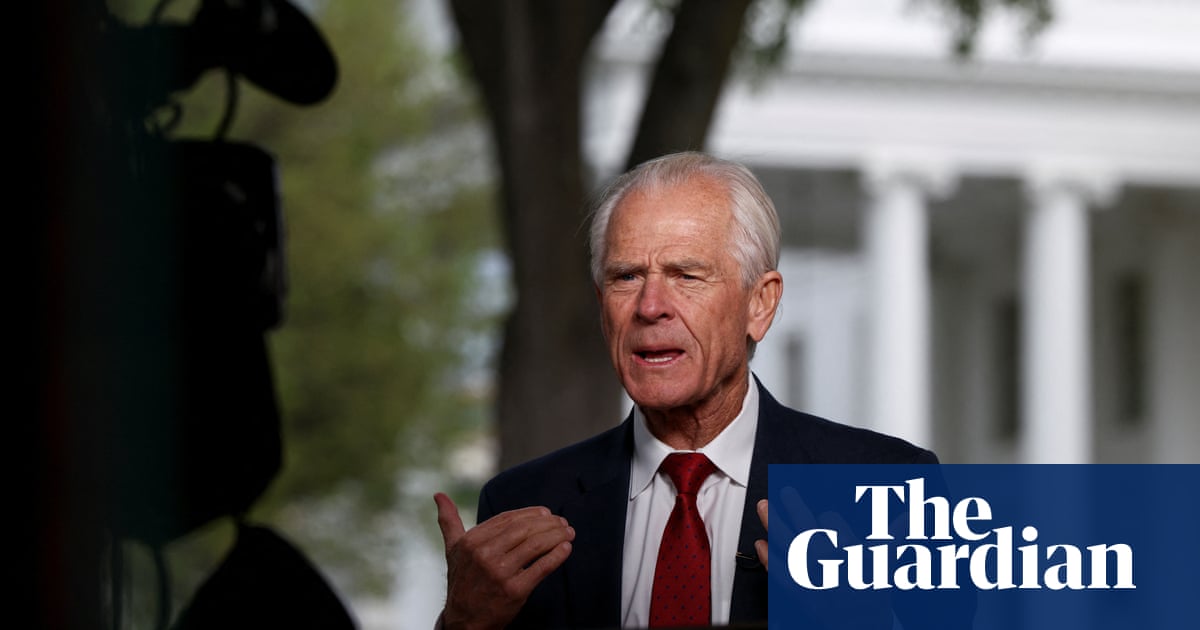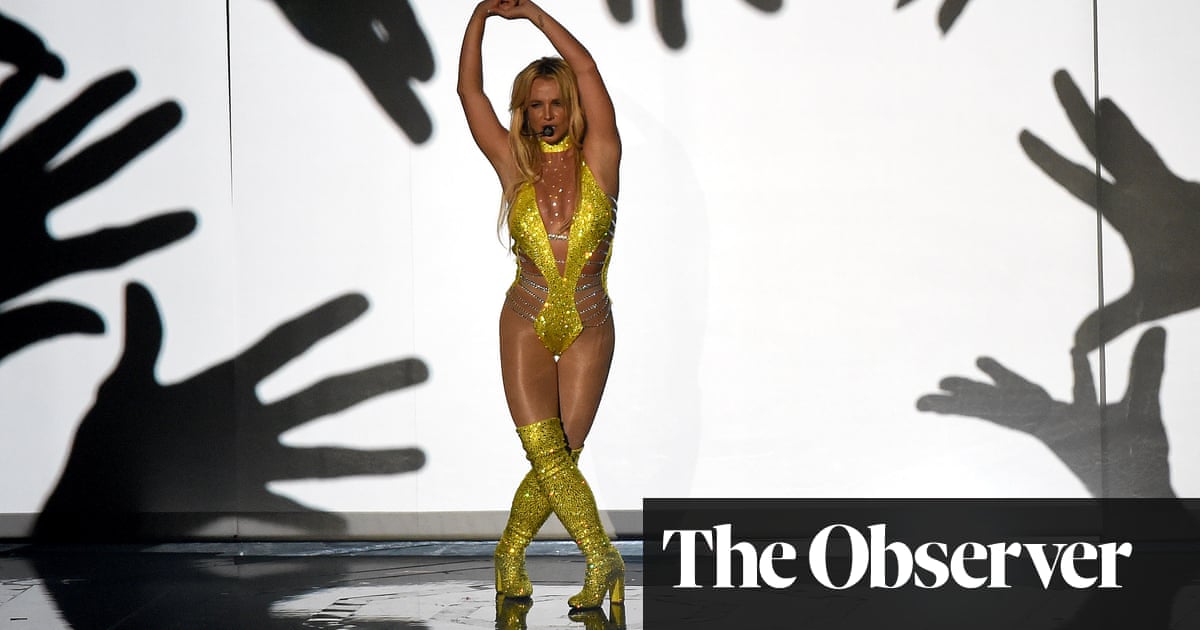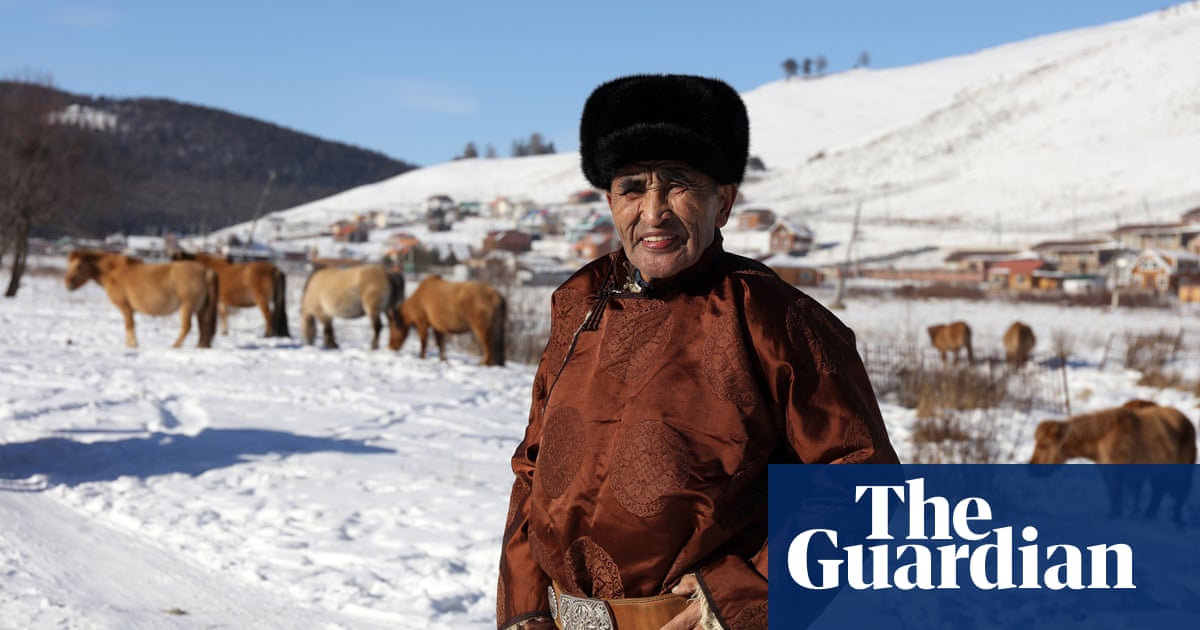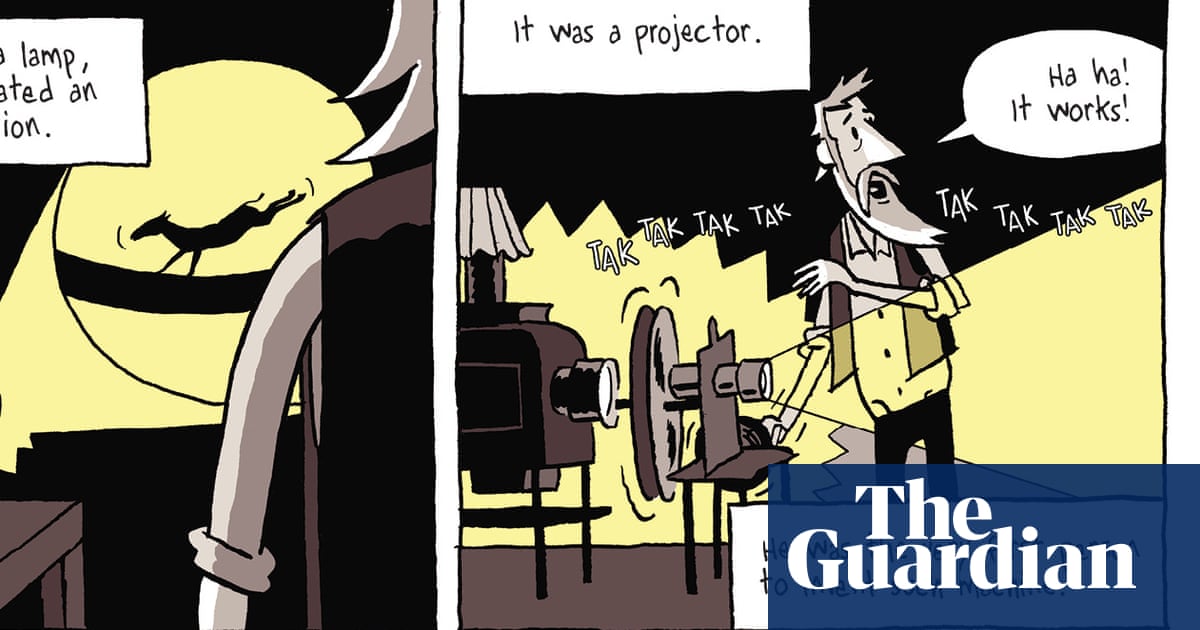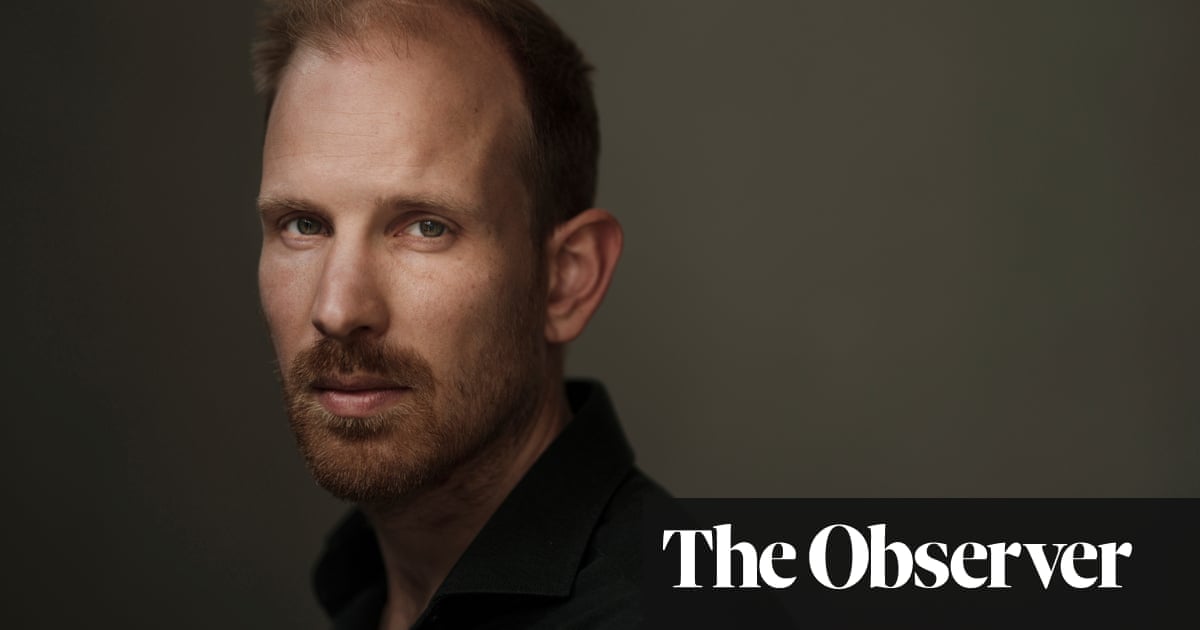The animated film Shrek opens with the eponymous hero wiping his bottom on a book. Shrek then emerges from the toilet and we follow his swamp-savvy morning routine. He bathes his huge and oddly luminous body in mud. He brushes his teeth with slime. He kills fish for his supper with his flatulence. So far so good.
But Shrek’s life is about to be interrupted. Lord Farquaad, the punctilious local potentate, is rounding up various misfits and banishing them to Shrek’s swamp. The film has Shrek put up “keep out” signs; he dreams of building a wall; and he frightens anyone who comes into his swamp with fierce-but-fake-but-fierce shows of aggression. But it’s no good. Shrek soon feels himself overwhelmed by “squatters” (as he calls them) and is furious.
He duly sets off for Duloc, the city where Farquaad lives and where, by way of contrast, everything is unnaturally immaculate, idealised and perfect. Here he is greeted at the “Information Booth” by animatronic characters singing the Duloc Welcome Song: “Welcome to Duloc, such a perfect town / Here we have some rules, let us lay them down …”
Shrek is an ogre, of course. He does not like rules. He doesn’t like welcome booths that are the opposite of welcoming. Most of all, he doesn’t like fake characters singing annoying songs to him about how they are going to lay down the law.
Ogres are one of the most ancient archetypes in human narrative and they have been with us since we first started telling stories. In Japan, they are known as oni. In tales such as Ali Baba and the Forty Thieves, ogres (or ghuls) are depicted as monstrous beings with a penchant for devouring humans. In The Epic of Gilgamesh there is a character called Humbaba – a giant guardian of the cedar forest. And, of course, there are ogres at the centre of the two foundational epics in western literature: the Cyclops, Polyphemus, in Homer’s Odyssey; and Grendel, who terrorises the mead-hall of Hereot, in Beowulf. As Seamus Heaney’s evocative translation has it: “Grendel was the name of this grim demon / haunting the marches, marauding round the heath / and the desolate fens.” Haunting the swamps in other words. And – yes – coming into town to get even in a bigly way.

And “bigly” is an ogre’s word if ever there was one, conjuring largeness, exaggeration, impact, something overwhelming; but also “bigly” is a dig at language itself and its pretensions to precision. You don’t have to be a writer to see the patterns. The ogres of folklore are always against written law. They are banished, exiled, cannibalistic creatures that inhabit a single realm outside “normal” society – the island (Polyphemus) and the swamp (Grendel). They are large and fearsome. They are gluttonous, violent and selfish. They consume without restraint and hoard wealth. They live for gratification. They are brutish and yet full of a lethal cunning and instinct. They are driven by a need to dominate or destroy anything they perceive as a threat. They lack empathy. They act solely out of self-interest. They are untamed beings of cruelty and desire and appetite. They are grotesques.
They are everywhere present in our stories because, of course, they are part of our struggle to understand ourselves. They represent the recurring preoccupations and apprehensions of the human psyche. They symbolise avidity and voraciousness. They are avatars for all the dangers lurking outside the safety of human society’s agreed norms and rituals.
Not just lurking outside, therefore, but lurking inside … lurking inside the human mind. Most of the time, we repress these traits in order to get along, and yet they persist – as drives and urges, as conscious and subconscious fears. In other words, ogres are not just monsters in tales but archetypal representations of the elemental aspects of our being. Indeed, if we step for a moment across one of the many footbridges between story and psychology, then we can see that ogres represent … the primal; also known as the id.
The id is the inner life we all of us share. The circuit board on which all of our various operating systems run – be they our politics, religions, tribes, nationalities. In the id, we find the collection of feelings and instincts that lie at the very core of the human being. Here lurks desire, lust and greed, avarice. Here seethes anger and aggression. Here is rage, raw, uncontrolled. Here, too, is jealousy. Here is the compulsion for vengeance. Here are the survival instincts: fear and anxiety. Here is euphoria, ecstasy, frustration, anguish. Here is the urge to act without reflection. This is the world of impulse, appetite and desire.
This is also the world of Trump. Trump is the nearest any modern politician comes to pure id. And one way to better understand his inauguration – and the strange folkloric spell of his seduction during the election – is to look through this lens of human story, of human archetype and psychology. Because it is on this deeper level that Trump broadcasts; it is here that he makes his powerful appeal; and it is here that he connects.
Indeed, the description of an ogre above might – without too much modulation – be deftly repurposed as a set of character notes for the future actors who will no doubt play him. The extra-large suits, the extra-large tie. The endless huge of it all. The hyperbole of speech and form. The anti-intellectual, anti-law, anti-civility. The lethal cunning, the canny instinct. The way he looms and thuds through the world – fist-inverted, heavy-footed, fee-fi-fo-fum. Trump doesn’t engage in a debate about “values” – no, sir; Trump smells your blood. All that grabbed pussy. All that hoarded gold way up the beanstalk on the 56th floor of Trump Towers.
Domination and treasure are two of the ogre’s preoccupations. Devouring is another. The teaser for the second term began thus: “They’re eating the dogs – the people that came in, they’re eating the cats. They’re eating … they’re eating the pets of the people that live there …” Eating, eating, eating, eating.

Consider Trump’s campaign visit to McDonald’s to work the frier in Feasterville, Pennsylvania. “Yeah, let’s make some more,” he says, “we got about 10,000 people out there … That’s a big crowd – huh?” (Double Jesus – for those paying attention). “I like it all,” he says, talking of the McDonald’s menu. “I like every ounce of it. Everything.” Then he gets to his political point: “I’ve always wanted to work at McDonald’s, but I never did. I’m running against somebody that said she did, but it turned out to be a totally phoney story. It was a big part of [Kamala Harris’s] résumé that she worked at McDonald’s – how tough a job it was. She … made the french fries, and she talked about the heat: ‘It was so tough.’” Then he adds with bone-grinding finality: “She’s never worked at McDonald’s.”
Think about what is actually going on here. Sure, the whole thing is staged. Sure, jobs matter. No, he’s not really working a shift. Of course not. Trump knows that you know and that’s why he’s still wearing his suit and tie. He never changes out of costume because he never changed into costume. (From where Trump is standing, from the point of view of the id, the rest of the world is in disguise; the rest of the world is fake.) No, what he’s saying underneath, what he’s transmitting, are messages to do with the primal pleasures of greed and eating … eating those everybody-loves-them-who-cares-if-they-are-bad-for-you fries. Even more than this, he is communicating: this job, working the frier, is sacred in an id kind of a way. And people who complain or lie about it don’t get that – and therefore can’t be trusted on anything else. Trump, on the other hand, Trump gets it. You’re hungry, he acknowledges, even for the bad stuff, especially for the bad stuff. Me too, me too.
“Can I give them extra salt?” he asks. “I love salt.” Yes, he does. And so do you. And then he starts handing it out for free to the drive-through line: “It is all on Trump,” he says, and turns around and asks, “I’m allowed to do that, right?” But the subliminal communication is again more potent than the seemingly casual question. What threatens my generosity in giving you these fries – what threatens our feast here in Feasterville – is the law, Trump is saying. And I tell you something: if the law dares to get in the way of a president feeding his people, then it’s just another fake law in a fake world, like all the other fake laws with which they try to punish and contain me, punish and contain you; the laws from which I will liberate you to eat more, and drive more, and fuck more, and have all the mores you want; it’s going to be huge.
Yes, sex is everpresent, too. As he serves the customers in their cars, Trump continually remarks: “You’re a good-looking guy”, or “what a beautiful woman”. Sex and food. Food and sex. One man says to him: “You made it possible for ordinary people like us to meet you.” And Trump says right back: “You’re not ordinary. I can see. Beautiful wife.” And then he hands the guy his order through the window of his car. He turns back again and says: “I’m having a lot of fun here everybody. Look at all the fake news over there.”
In one sense, that is the whole election – in that moment. All the fake news of human thought over there but right here with Trump … the truth of food and sex.
For our stories to endure, they must be fun as well as scary; every story and therefore every ogre in the storyworld also has to … entertain. And, of course, Trump knows this better than anyone. Indeed, fun is what Trump spends a great deal of time telling us he is having. He uses the word from time to time but his body and his gestures and his general don’t-give-a-shit deportment is also often about conveying fun. Fun is the bad dancing at the rallies. Fun is what he’s having with the fryer. Even the felonies are fun, too, right? If you’re an ogre. Because everyone knows you don’t get the gold without the bending a few rules and – anyway – the law is a pathetic joke to the id. The sex cases the same. Says Trump to the female lawyer grilling him in one of his harassment hearings: “I say this with as much respect as I can, she [his accuser] is not my type … Not my type in any way, shape or form.” And then he adds, addressing the female lawyer herself: “You wouldn’t be a choice of mine either, to be honest with you … I hope you’re not insulted. I would not under any circumstances have any interest in you. I’m honest when I say it.”
There’s no respect and he doesn’t care if you’re insulted. When Odysseus appeals for hospitality, invoking the gods, Polyphemus says: “We Cyclops care not a whistle for your thundering Zeus or all the gods in bliss.” Ogre-fun, it turns out, is often threat and menace because most of the time it’s just ogre-anger in a different key.
after newsletter promotion
Transaction is another signifier of the id-world. Consider Trump’s book, The Art of the Deal. Think about the trumpeting of deals. Why is the deal so important? Because the deal isn’t about “values” or “morality”, it’s about self-interest. Come on, now: the real world is transactional, Trump grins. That’s the only thing you can really trust. In the id-world, you look not for nobility or fairness in your interlocutor but for weakness – greed, vanity, ambition, jealousy; you eschew the profound in favour of commodity and bargain. When it comes down to it, Trump reminds us, there will have to be a deal. So enough of your phoney “values”.
Indeed, seen from these swampy vantages – greed, sex, power – Trump is not a liar at all, he is a truth-teller. (Truth Social: “follow the truth”). He is honest when he says it. The world is primal, Trump whispers, everything else is made up or posturing and – deep down – you know it and I know it and everybody knows it.
Trump – as ogre, as id – not only understands all of this, he embodies it. This is what so many of the political podcasts and back-peddling pundits missed. Trump is saying, profoundly, “I understand you. I get it.” There’s an id-entity in there that he’s talking to beneath all those other identities we adopt. And it may not be noble or pretty – not at all – but it’s real and it’s ravenous and it’s rapacious and it’s irresistible.
Indeed, this is one reason why identity politics so often loses to the id-summoning assertions of populism. When times are precipitous and the polity is bitterly contested, human beings tend to back away from “argument” and “ideals” and edge back towards the dependable “truths” of the id. And the story world – where Trump broadcasts loud and clear – is so very powerful here because it darkly enchants; and because it occludes the complex world of actual issues, actual policy, actual debate, actual solutions. You don’t need a ground game when you’ve got an id-game. You don’t need leaflets about policy when you’re the latest main character in an ancient human saga all about wealth and food and sex and anger and fear and power and vengeance.
And it’s interesting to note how our great writers smuggle in sympathy for their ogres’ retaliations. Notice, for example, how Homer describes Odysseus as polytropos meaning “wily” in his opening line. We sense straight away that Odysseus’s intelligence can also be provocative and irritating. Sure, Polyphemus only has a single eye but (like Shrek in his swamp) he was minding his own business before the Greeks turned up and started demanding hospitality. To add insult to injury, Odysseus boasts as he escapes, taunting the cyclops from his ship: “Cyclops, if ever mortal man enquire / how you were put to shame and blinded, / tell him Odysseus, raider of cities, / took your eye…”
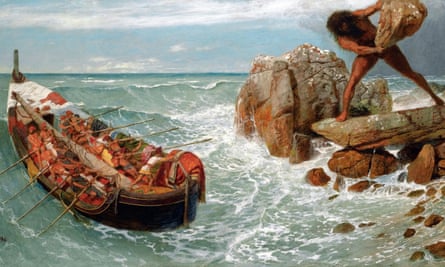
But we sometimes forget that Polyphemus has the last laugh because he asks his father, Poseidon, (an id-god if ever there was one), to punish Odysseus: “Hear me, Poseidon, god of the sea blue mane who rocks the earth! … grant that Odysseus … never see his home. / Or if he must, let him come late, having lost all companions, in a stranger’s ship, and find a world of pain … ” The curse is a pivotal moment in the story. Homer – in this moment – is on Polyphemus’s side because of Odysseus’s hubris. And, as we know, it takes Odysseus 10 years (or two election cycles) to get back to Ithaca. And yes, there’s a world of fresh trauma waiting for him when he gets there.
Grendel, meanwhile, is not welcome at the White House correspondents’ dinner either. He is described as an outcast doomed to brooding, isolation and rage. But there’s also a counter-tone of pity in the lines: “It harrowed him / to hear the din of the loud banquet / every day in the hall, the harp being struck / and the clear song of a skilled poet / telling with mastery of man’s beginnings …” What enrages Grendel is that he has been excluded from the kinship, from the rituals of the banquet and the fellowship of music.
In this way, the primal and the rational are in antiphonal relation; one summons the other. The swamp and the city are always part of the same human story. Which brings us to the proper counter to the ogre’s appeal. Because of course the id is not the only truth of human relations. The cyclops has but a single eye. Human beings cannot – and do not wish to – live in the primal world alone. Death is redeemed not through deals but by love.
In psychological terms, the id is no more than a third of the human psyche. There is also the ego (wherein we are rational, controlled) and the superego (the internalised operation of moral standards and ideals). And, sure enough, our stories are also thronged with archetypes of love and reason, with saviours and sages, moral operators and wise rulers. For every Caliban a Prospero. For every Polyphemus a Penelope.
The task of the progressive, therefore, is to avoid appearing like Farquaad. In Duloc, Farquaad preens as he polices the rules. He patrols the borders of language and reaction. He holds up signs to tell the people what to do: “applause”, “laugh”, “aww”. In Duloc, everything must be perfect and pristine. Sure, you might just about put up with this if you are economically secure and Duloc more or less works for you. But the feeling of being reprimanded is the opposite of fun, and this certainly is no way to bring people outside with you. No, the would-be leader must surely be as perceptive and attentive toward the inner lives of their fellow human beings as are the enduring writers. They must seek again to make a real and more universal connection. And they must surely acknowledge appetite and desire and anger and fear – ideally with conviviality – and then offer something much richer: the rest of the human experience.
This manoeuvre – connection first, inspiration second – is what marks out the greatest politicians. Leaving aside secondary considerations such as the right-left or the right-wrong, think what Churchill’s demeanour transmits at its most simple: I get it about the whisky and cigars and the epic dinners – I do, my friends, I do – but still we must fight for “the worst form of government, except for all those other forms that have been tried from time to time”. Or consider John F Kennedy’s persona and body language which (before he says a word) declare in the most charming manner possible: I get it about the glamour and the sex – none more so, none more so – but still we must aspire to go to the moon and “set sail on this new sea because there is new knowledge to be gained, and new rights to be won, and they must be won and used for the progress of all people”.
Of course, you have to be a remarkable human being to embody and encompass all of this. But then the leader of a democracy should be an exceptional human being – not in the sense of being merely virtuous, but in the deeper and more resonant sense of being emotionally and psychologically capacious.
In the meantime, welcome to Feasterville.
Edward Docx is a novelist and screenwriter. His latest book is Let Go My Hand.

 2 months ago
44
2 months ago
44


